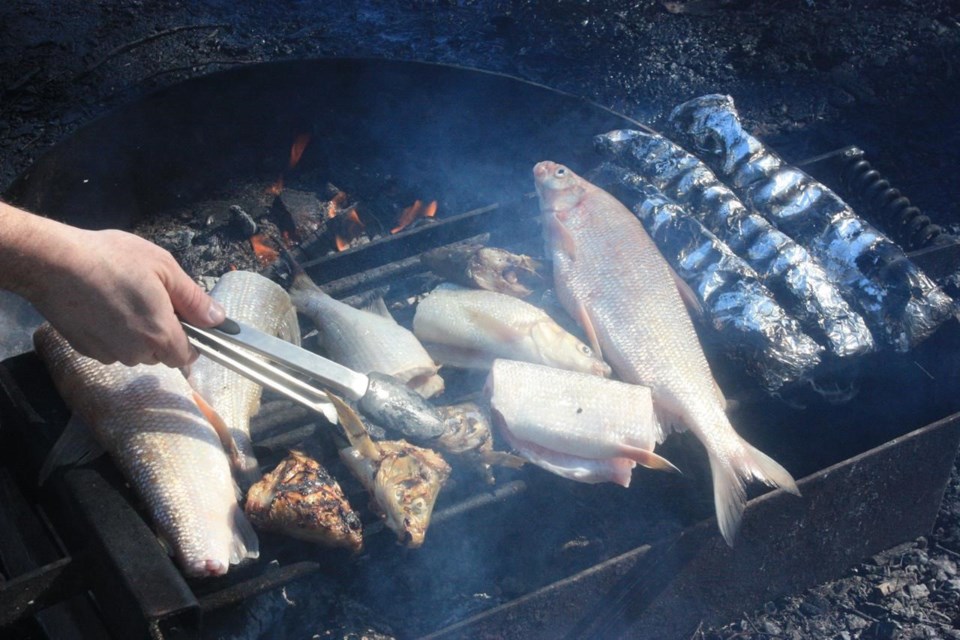YELLOWKNIFE — By the shore of the still-frozen Yellowknife River, more than a dozen people gather to prepare fish for cooking over a crackling fire.
Originating from different communities across the North, they share the unique ways they've learned to clean and cut them.
Wildlife officers and trappers are reconnecting vulnerable people with on-the-land skills through a partnership between the Northwest Territories Department of Environment and Climate Change and the Yellowknife Women's Society.
"We've heard a lot of people talk about how it helps some of their journeys," said Vincent Casey, education outreach co-ordinator with the department.
"Certain people share with us a lot about their healing journeys themselves, as well as that connection back to lifestyles that they had when they were younger."
"I think for a lot of people, they really enjoy being able to do something different than what they have and having this opportunity to have people come in and share and teach and be able to learn."
Casey said the program is important, as trapping has a strong cultural connection for many people in the N.W.T., but is at risk as many lose touch with their traditional ways.
He said it's part of longer-term plans to develop trapper training across the territory, including for underserved populations.
The program started as a pilot at the North Slave Correctional Complex last year, when every two weeks, inmates in Yellowknife learned outdoor skills from hunting and trapping to repairing snow machines.
Sessions at the jail have continued and the program has since expanded with a pilot for residents of Spruce Bough, a supportive housing facility that offers a managed alcohol program and other services, and the Yellowknife Women's Centre, which provides shelter for women experiencing homelessness. Both are operated by the Yellowknife Women's Society.
The program held its fourth and best attended session last week. It was also the first time they met outdoors, reflecting feedback from participants.
In previous sessions, Casey said they discussed different animals that can be trapped across the territory, trip planning, survival skills and rules and regulations. He said they also skinned squirrels and watched a demonstration of a fox pelt being prepared.
Jayson Quesada, manager of Spruce Bough, said many residents have experienced trauma and the program has helped reintroduce them to traditional skills and lifestyles they may have forgotten.
"They are more, I can say, relaxed," he said. "It's good for them to experience this again.
"We're happy to provide services and help our brothers and sisters that are in need, especially dealing with evictions, trauma and discrimination."
The group spent the sunny afternoon enjoying a meal of fish, potatoes, tea and coleslaw and ended by feeding the fire with tobacco and saying prayers.
This report by The Canadian Press was first published April 24, 2023.
___
This story was produced with the financial assistance of the Meta and Canadian Press News Fellowship.
Emily Blake, The Canadian Press



